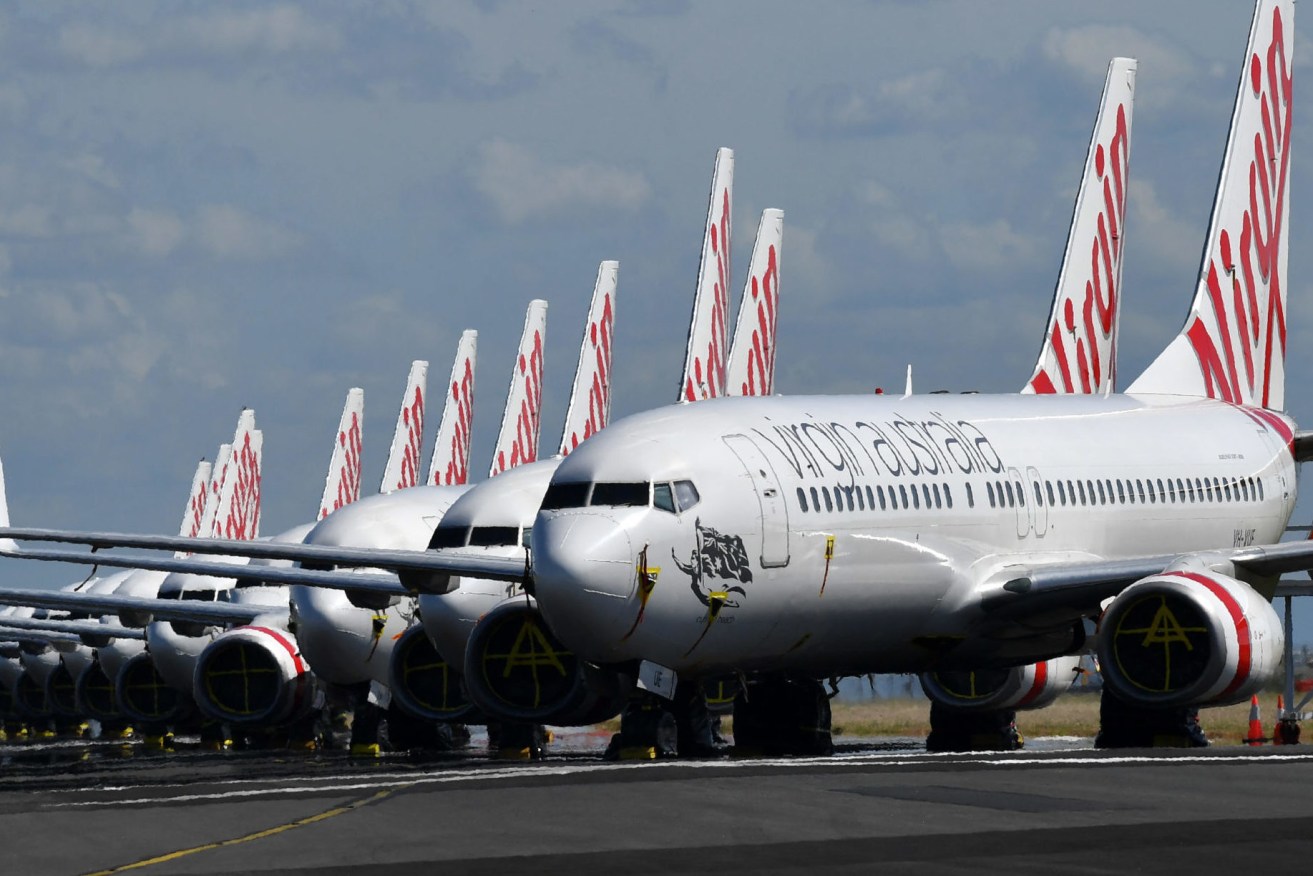The high-stakes Virgin poker game has begun, but it’s our money on the table
The Queensland Government is prepared to bet $200 million it can keep Virgin Airlines in the air and in Brisbane. But governments don’t have a great track record backing private companies with public money, writes Robert MacDonald


Final bids for the airline close this week. (Photo: AAP Image/Darren England)
When State Development Minister Cameron Dick announced 10 days ago the Queensland Government was prepared to provide $200 million of public money to save Virgin Australia, you could reasonably have written it off as a rush of blood to the head.
Why would anyone in their right mind offer to tip money into a company with little revenue, owing nearly $7 billion to more than 10,000 creditors and overseas owners showing no interest in reaching into their own pockets.
In any event, $200 million – and who knows how they settled on that figure? – would barely start covering the costs of the circling flock of advisors working on what next to do with Virgin.
But Dick really had no choice. He is, after all, the State Development Minister of a Labor Government, backed by unions demanding action to save thousands of Virgin jobs.
Virgin also means a lot to Queensland and not only because of its impact on tourism, regional investment and jobs.
Virgin is one of Queensland’s few nationally significant head offices, lured to Queensland in 2000 by millions of dollars in incentives offered by the then-Beattie Government.
The political pain for the Palaszczuk Government would be enormous if Virgin does survive in some form or another only to be wooed south by Victorian or New South Wales Government-backed proposals.
And so, Dick had to let it be known the Queensland Government wanted to be a player in whatever happens next to Virgin.
He had little choice but to declare Queensland’s interest in a move akin to buying a seat at the table of a high-stakes poker game.
“Our message to potential investors is that we are prepared to put money on the line to keep a national carrier based in Queensland,” he said when revealing the offer.
It was, in any event, a pretty safe opening bet. Dick made the $200 million announcement on Saturday 18 April, four days before Virgin announced it had gone into voluntary receivership, on Tuesday 21 April.
He must have known no one was going to take him up on his offer while the company was in its then-current state.
And even if they did, he’d added plenty of caveats. To quote from his media release:
“Mr Dick said Queensland Government support was conditional on federal government backing, debt restructuring, shareholders and bond holders doing their bit, headquarters remaining in Brisbane and ongoing regional flights.”
But all of this raises the question of whether governments should even be using public money to bail out failing companies, or underwrite new businesses somehow assessed to be in national interest.
A Queensland Productivity Commission report from 2017 warns of the dangers of the wrong sort of government intervention.
The Commission was specifically looking at what the state government could do to encourage Queensland’s manufacturing sector but its observations could just as easily apply to broader industry development policy.
For instance:
“‘Picking winners’ has generally come at a cost to the community.”
And:
“Manufacturing policy should not be used to promote a specific sector or firm as an end in itself.
“There is a long history of missteps and failures when governments have sought to do so, at a cost to the economy, community and, in many cases, the manufacturing sector.”
It cited the example of Australian Magnesium Corporation, an early 2000s scheme to build the world’s largest magnesium smelter near Rockhampton.
The project won the backing of both the Queensland and Australian governments, which “foresaw large and beneficial employment (of up to 7000 jobs) and investment ($4.5 billion.)”
“However, the project was not viable and work ceased in June 2003,” the Commission report notes succinctly.
The Australian Government lost $90 million on the deal and the Queensland Government, $70 million.
Magnesium smelters and airlines have little in common but the lesson remains the same – governments don’t have a great track record when it comes to throwing public money at the problems of private companies.
Dick might have bought – or bluffed? – his way into a seat at the big game but let’s hope he remembers just whose money he’s playing with – ours.












